We live in a condo building that was built in 1963. It’s a 14-story building with more than 100 units in it. In addition to each unit having their own fire alarms, there is a central fire alarm system for the entire building. Because the building is older, the systems in the individual units aren’t tied into the central alarm system. The walls between these units are thick concrete walls, so the sound from other units and from the central hallway is deadened within each individual unit. I thought this was a positive because I wouldn’t have my alarms going off everytime someone in the building burned the toast, but I realized it was a problem the first occasion when the central alarm went off early one Sunday morning while I was still asleep. I don’t know how long the alarm had been going off before I finally woke up, but it was so faint and distant sounding in my bedroom that I thought it was probably street noise at first. Another night, I was in the bedroom reading (about 40 feet away from the front door) while my husband and daughter were watching TV in the living room. To keep noise levels down at night, we usually use headphones to listen when we watch movies, so they couldn’t hear the central alarms, either. It was another 10 minutes that night before I realized that the central alarms were sounding; my family never heard them at all because of their headphones.
I had written a news post about the Leeo Smart Alert Nightlight before these events, and I decided that the Leeo was just what I needed. Leeo listens to the sounds in your house, and it can alert you when it hears an alarm. It’s a way of automating and connecting your home security system to WiFi without having to replace the entire system. It plugs into a power outlet and serves as a nightlight while it listens. If it hears an alarm, it immediately notifies you through the Leeo app on your phone. If you don’t respond within a reasonable time frame, it will call your designated contact to let them know things are amiss in your home.
Julie asked Leeo if The Gadgeteer could review a Leeo, and they agreed. I quickly received the Leeo Smart Alert Nightlight and plugged it in immediately. Unfortunately, I wasn’t up and running with Leeo immediately, but it wasn’t Leeo’s fault. I had some problems with my old, existing smoke detectors not working properly, but Leeo works very well once I replaced the old alarms. Let’s give it a closer look.
The only thing in the box is the Leeo and a small quick-start quide booklet.
Leeo is 3.4″ in diameter and extends 1.2″ from the wall when plugged in. It’s made of a white plastic.
The grid on the front is where one of Leeo’s sensors is located. In addition to listening for smoke and CO detectors, the device monitors the temperature and humidity in your home and can alert you when those values are outside your set points. This could be invaluable when you have a vacation home. Leeo could alert you if the heat or the air conditioning fails while you aren’t there and save your home from damage from frozen pipes or the like.
Much of the side is covered with a translucent plastic. The nightlight is in this area. The button seen in this image is a reset button; it’s only needed if you are experiencing problems getting Leeo setup and connected to your WiFi. I’ve never used this button.
Speaking of WiFi, let’s talk about the requirements for using Leeo to monitor your house’s smoke and CO detectors. You’ll need an iPhone 4S or newer running iOS 7 or later or an Android phone running 4.3 or later, and you’ll need to install the appropriate free Leeo app on your phone. You’ll also need in-house 802.11 b/g/n @ 2.4GHz WiFi so Leeo can alert your phone when it detects something is wrong. Finally, you’ll need a US residence address.
Here’s the back of the Leeo. The grid here exposes another of Leeo’s sensors.
The little quick-start guide doesn’t have a lot of information to help you get set up. You’ll be better off if you watch the series of short videos on the Leeo website before you install your new detector. I watched the videos, then I downloaded the free Leeo app to my iPhone 6 Plus, plugged in the detector to an outlet, and followed the steps outlined in the videos. As part of the setup process, you’ll need to give your residence a name, and you’ll need to enter your cellphone number and the address of your residence.
Leeo is plugged in and the nightlight is on.
You need to locate the Leeo detector near one of the alarms in your home. I located it in my dining room, which opens into the foyer of my home. The foyer is located very near the building-wide alarm system in the outer hallway, and the foyer has one of my home’s smoke detectors in it. According to documentation, Leeo can detect alarms up to 75 feet away from its location. My home’s second alarm is located about 30 feet away from this location.
The installation videos say that placement of the Leeo detector is important. Closed doors can prevent Leeo from hearing an alarm, so you should try to locate the detector in open rooms and hallways of your home. You may want to consider installing more than one Leeo in your home if you have a large home or multiple floors. The Leeo app can handle multiple sensors in each residence. You can also monitor multiple residences in the app, so you could monitor your primary residence and vacation home, or you could monitor your home and your parents’ home, for example.
You’ll need to create an account with Leeo. And you’ll need to allow notifications if you want Leeo to actually be able to send you alarms.
After the account is created, you’ll need to connect Leeo to your home’s WiFi.
After those steps are completed, Leeo will check for updates and complete its preliminary setup procedure. That can take a few minutes.
When it’s completed, it will show you the ambient temperature and humidity in your home. Setup isn’t quite complete at this point.
Now you need to let Leeo “listen” to the alarms in your home. This is where I ran into problems. Leeo “heard” my foyer alarm, but it thought it was a CO detector; it was never able to “hear” the second smoke alarm in my house. And although it had originally detected the foyer alarm, Leeo wouldn’t notify my iPhone when we set off the foyer alarm in a later test. I went to the troubleshooting information on the Leeo website and found the following:
“The Smart Alert™ Nightlight is designed to work with all smoke and carbon monoxide alarms sold after 1996.
Leeo’s alarm detection algorithm is programmed to detect the pattern and frequency of standard smoke and carbon monoxide alarm signals. In the case of smoke alarms, the Smart Alert™ Nightlight listens for all alarms that emit the Temporal-3 (T3) signal, which consists of long beeps in sequences of 3 separated by a pause. Visit the link below to hear what a T3 signal sounds like.
This alarm signal has been the standard required by the National Fire Protection Association and UL since 1996. Most smoke alarms manufactured before 1996 make a different sound, the continuous signal, which sounds like a continuous series of rapid beeps. If you have continuous smoke alarms, Leeo will be unable to detect them – however, if the alarms in your home were manufactured before 1996, they are almost certainly due for an update! Since the sensors in smoke detectors only last for 10 years, we strongly recommend replacing your detectors if your smoke alarms do not match the T3 signal above.
In the case of carbon monoxide alarms, the Smart Alert™ Nightlight listens for the Temporal-4 (T4) signal, which consists of short beeps in sequences of 4 separated by a pause. Visit the link below for a sample of the T4 alarm signal – and remember, carbon monoxide detectors wear out more quickly than smoke detectors, requiring replacement every 5-7 years.“
Turns out the detectors in my condo apparently were older than my almost 20 year-old daughter. It was time for a trip to the hardware store for new ones. Although my current alarms seemed to perform properly when tested, and my bedroom-area alarm certainly let everyone know when my husband burned the bread in the kitchen, I wanted to be sure that I had good alarms to protect my family.
After I got the new smoke detectors installed on the ceiling of my foyer and my hallway outside the bedrooms, I was ready to complete the setup procedure for Leeo.
After the smoke alarms were detected, Leeo returned to its normal standby mode.
We set off the foyer alarm to test how the Leeo app sends out a notification to the app on my iPhone. Immediately upon hearing the foyer alarm, the Leeo turned on a red nightlight, and my iPhone alerted me with the message seen above. I could actually choose to listen in to the sounds in my home before deciding to have the app call 911. If it’s a false alarm (due to a dying battery in the detector, for example) or a test like I was performing, I could dismiss the alarm. When dismissed, the Leeo turned off its red light and the detector and the app returned to standby mode.
And notice that the location of the residence and the location within that residence is identified at the top of the alert window. I named my residence “condo”, and the location of my Leeo is “entry”.
My biggest problem – not with Leeo, but with my building – is that I can’t get the management company to agree to run a test of the central alarm so that I can let Leeo listen to it. It’s been a while since I heard those alarms, and I don’t know if they use the proper sounds that will trigger Leeo to send me a notification. Next time I hear them, I’m going to take a moment to let Leeo listen to them while my husband is calling the front desk to find out if it’s another a false alarm.
Leeo can notify you when the temperature or humidity in your home exceeds the range you set for each in the Leeo app. This came in handy recently when the building was having problems with the air conditioning unit. When I got the alarm that the temperature or the humidity was outside my comfort range, I knew it was time to file a problem report. Luckily, the problem with the A/C was fixed, and I haven’t gotten an alert recently. I do however like to open up the app on my iPhone and check what the temperature and humidity are in my dining room and living room area. Those are always displayed on the home screen in the app.
The Apple Watch can also mirror alerts from the Leeo app.
Leeo also functions as a nightlight. You can turn on the ambient light sensor in the app, so Leeo’s nightlight only comes on when the room is dark. You can also select the color you want the nightlight to be and how bright or dim you want it. I typically leave my nightlight set to the brightest setting and leave it on white light. It lights up the room nicely at night so I can see to navigate from my condo’s hallway through to my foyer. It doesn’t have a backup battery, so it won’t light your way in the event of a power outage.
The Leeo Smart Alert Nightlight has worked perfectly for me. First of all, it alerted me to the fact that the smoke detectors in my home were well past the time when they should have been replaced. Once I had modern detectors installed, it is able to alert me on my iPhone when it senses something as minor as an uncomfortable temperature or humidity level or as severe as a smoke or CO detector sounding. In the event that I don’t respond quickly, it can alert my contact (who has to agree to be a backup contact) that I’m not responding. That way, help can be dispatched in case I’m in the home and perhaps overcome by smoke or carbon monoxide. If I get an alert from Leeo while I’m away from home, I can call the front desk and ask them to check in on my unit, which will greatly increase my peace of mind when I’m traveling. Leeo is a $99 insurance policy for my home and my peace of mind.
Source: Leeo provided the unit used for this review. Learn more at Leeo.
ESR for MagSafe Wallet with Stand, RFID Blocking with MagSafe Ring, 5 Card Holder for Phone Case, Slim Leather Magnetic Wallet for iPhone 17/16/15/14/13/12 Series(Not for Mini), Selected Samsung,Black
11% Offfor MagSafe Wallet, Stronger Magnetic Wallet for iPhone 17/16/15/14/13/12 Series, 7 Cards Holder, Magnetic Phone Wallets, Vegan Leather Minimalist Slim RFID for iPhone Wallets, 1 Slot, Black & Black
32% OffProduct Information
| Price: | $99.00 |
| Manufacturer: | Leeo |
| Retailer: | Leeo |
| Requirements: |
|
| Pros: |
|
| Cons: |
|

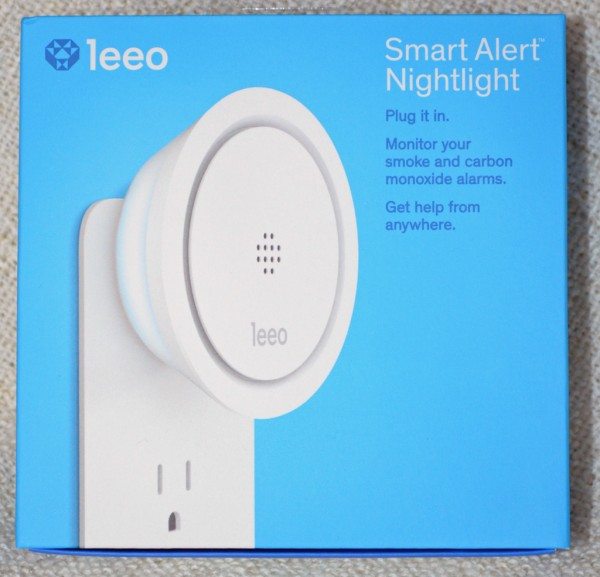
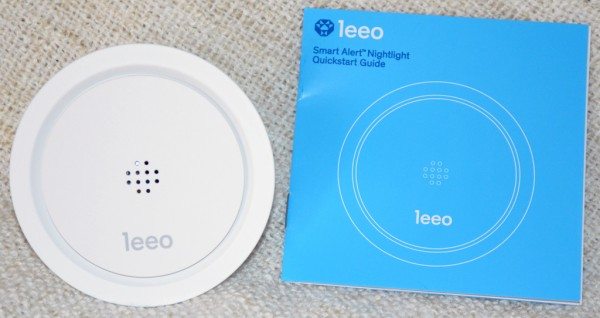
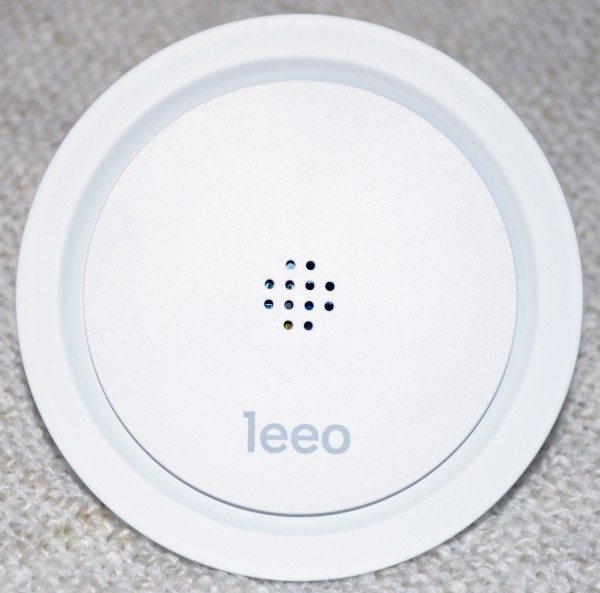
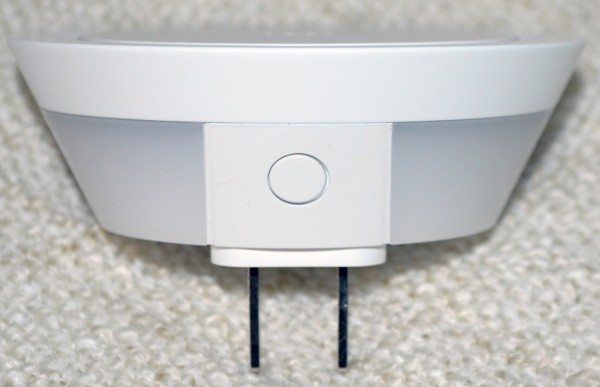
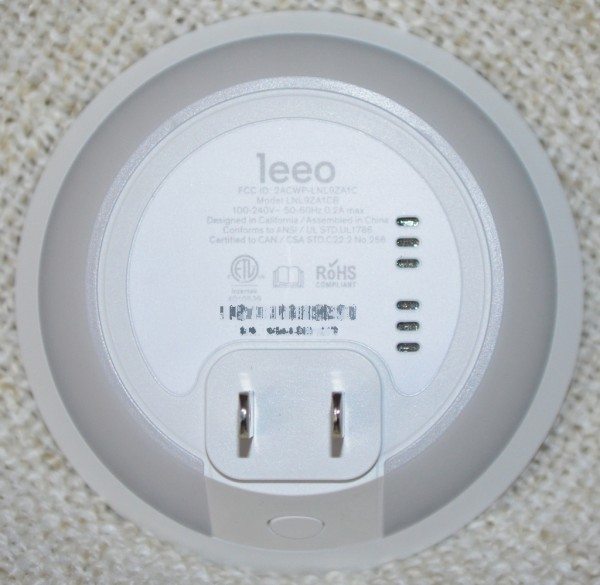
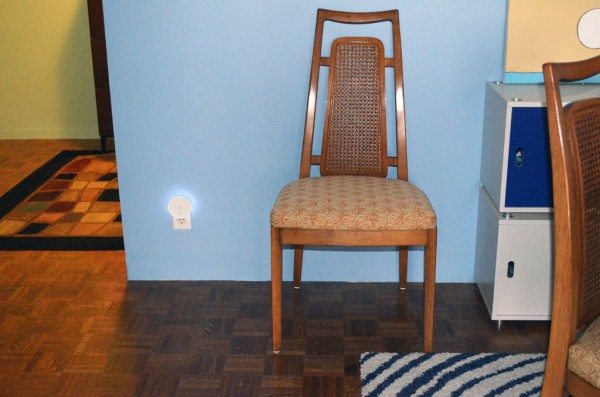
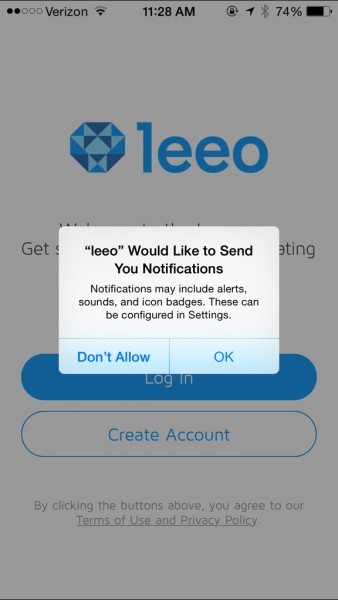
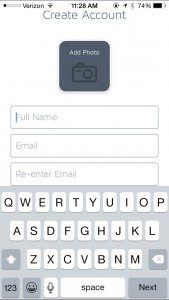
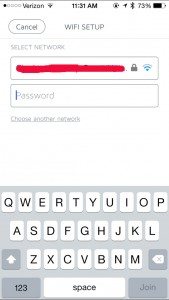
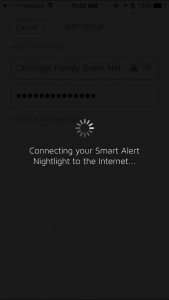
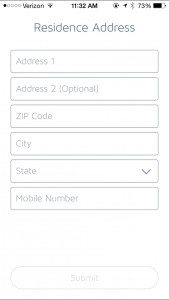
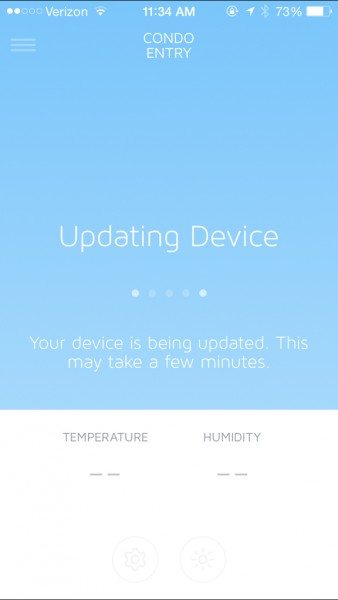
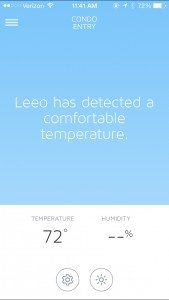
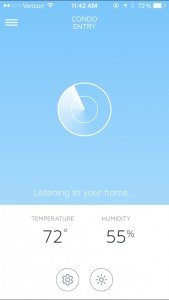
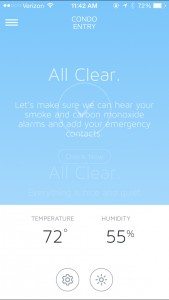
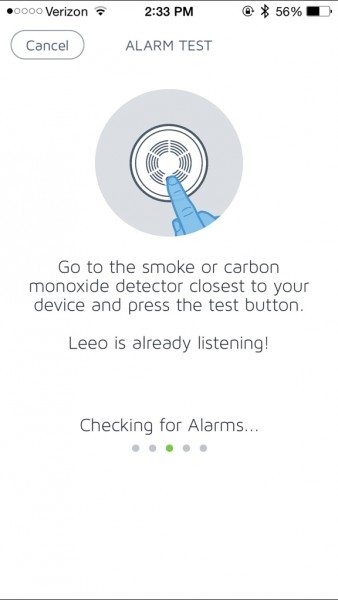
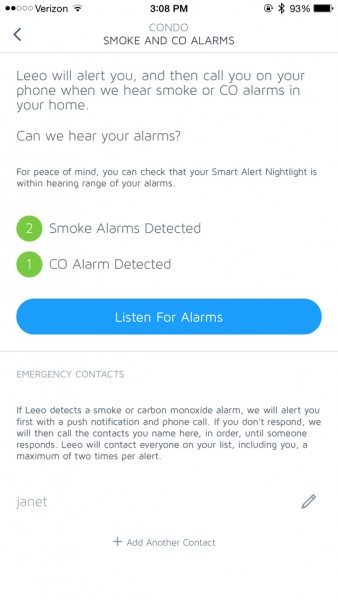
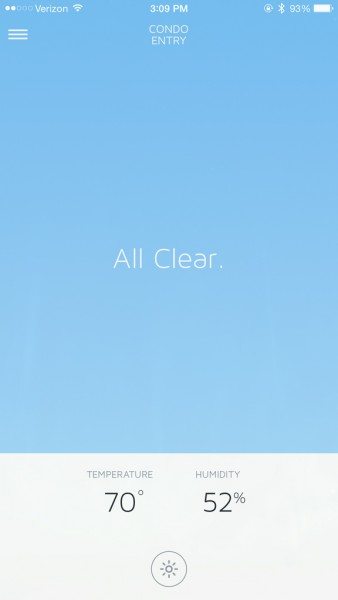
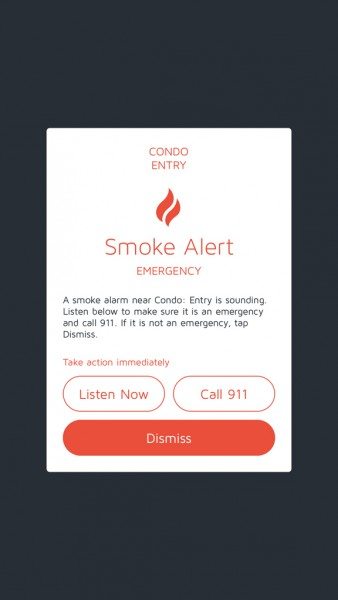
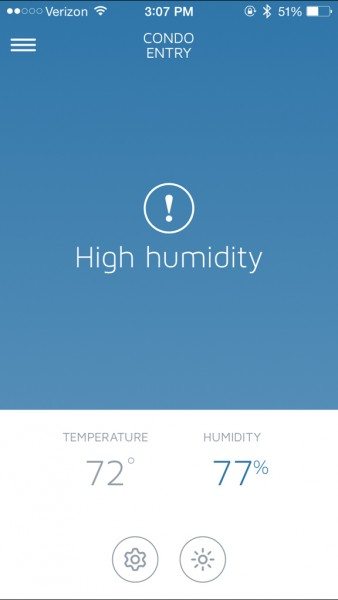
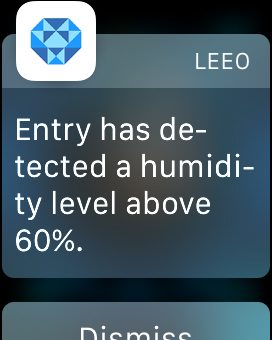
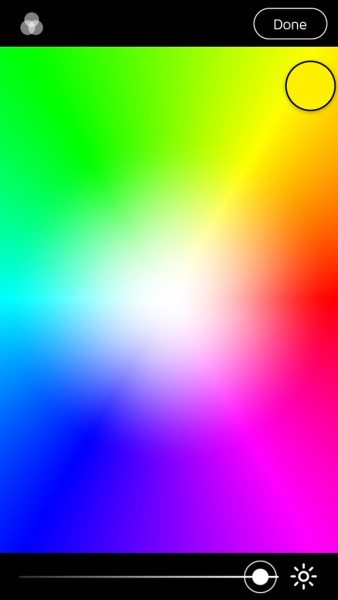
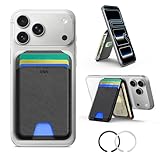

Gadgeteer Comment Policy - Please read before commenting
Does the information from Leeo go through their cloud servers or is it just your own IP to WiFi to phone?
I wouldn’t want Leeo’s information to be sitting on someone else’s cloud.
Since the first step to setting up Leeo is to create an account, I assume your data goes through Leeo’s servers at some point.